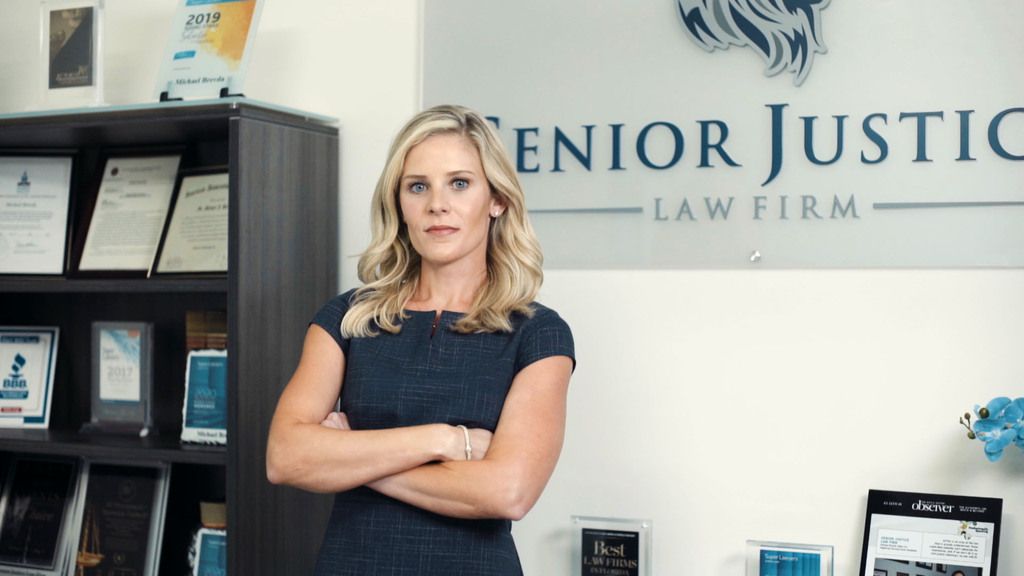Filing a Lawsuit Against a Lynchburg Nursing Home? Our Virginia Attorneys Can Help
We are Lynchburg nursing home abuse attorneys who exclusively deal with cases involving negligent or abusive nursing homes. Our aim is to award you both the justice and financial compensation you deserve, while also holding these long-term care facilities accountable for their behavior.
Interested in contacting our Virginia nursing home abuse attorney? Below is the name, address and phone number of our Virginia office.
Senior Justice Law Firm
2601 Granby St, Norfolk, VA 23517
(757) 530-4255
Prefer typing over talking? That’s perfectly OK. Live chat with our office using the below chat feature to inquire more about a potential Virginia nursing home negligence case.

Lynchburg, VA Nursing Home Negligence
When you or a loved one is compiling a list of the best places to retire to, Virginia probably lands somewhere near the top. The historic, picturesque cities, beautiful landscape, and mild weather all contribute to its recent burst of popularity for those seeking a comfortable place to retire. As a result of this, the Lynchburg area has also seen a recent spike in nursing homes, growing to meet the popular demand.
However, this does not mean that all of these Lynchburg nursing homes are well-equipped to care for your loved one. Many have not been able to master how to properly care for residents, and this can lead to abuse, neglect, and pain and suffering. All one needs to do to confirm this is to take a look at the federal government’s list of nursing homes cited for abuse; a quick glance confirms that several Lynchburg nursing homes have made the list. Even if your loved one’s facility has no bad reviews, that is not necessarily a guarantee of their safety and comfort.
If you suspect that a loved one may have experienced neglect or abuse as a resident in a Lynchburg nursing home, give Senior Justice Law Firm a call at (757) 530-4255.

Lynchburg Nursing Homes Fail to Meet Standards
Part of the reason for Lynchburg’s recent explosion in popularity is that it has something for everyone to do. It has several museums, from a children’s museum to a historical Lynchburg museum in the old courthouse. You can take a stroll through the many public gardens that dot the area, and tours are available of many of the historic homes in the area, such as the Point of Honor house and the Anne Spencer Garden & Museum, which are open to the public. Downtown, people walk along the James River before heading to one of the area’s restaurants or taking a break for shopping.
In fact, Lynchburg and its connecting areas are home to 10 nursing homes. However, the number of facilities is not an indication of the quality of care they may provide, and many have scored poorly on government reviews and have even been added to the federal government’s database for confirmed abuse cases.
Qualities of Abusive Nursing Homes
In Lynchburg, nursing homes are receiving average scores at best, and many are scoring significantly lower. An important contributor to this is the fact that many of these long-term care facilities are run as for-profit institutions, which prioritize money over the quality of life of their residents.
A key method that these facilities use to maximize profit is by understaffing their nursing homes and forcing staff members to be responsible for as many as 30 residents; the best care is achieved when staff are responsible for caring for no more than four residents at once. However, if each staff member can care for eight times the recommended number of residents, the nursing home can fill more beds—thereby increasing its profits, often at the expense of quality of care.
This knowingly creates a situation that is ripe for abuse and negligence. Caring for so many residents leads to time shortages, and many nurses simply do not have enough time to tend to all of their patients over their shift, which can lead to injuries and unnecessary suffering. Although staff members may not intentionally cause this pain and suffering, it is nonetheless unacceptable and is classified as negligence. Even if the pain they cause is unintentional, nursing homes still can and should be held accountable for mistakes that harm your loved one.
If you have reason to suspect that a loved one may have been abused or neglected in a nursing home, suffering from pain, injury, or even death, you may wonder which steps to take next. An important first step to take is recording your observations of what you’ve seen. The marks of negligence are not always visible, but they are commonly present in the form of the following injuries.
Bedsores in Lynchburg Nursing Homes
One of the most obvious forms of negligence can be bedsores, which can also be one of the easiest forms of neglect to definitively prove. They cannot develop because of a prior medical condition or situation—in fact, the only way they can arise is by direct neglect from nursing home staff. They are caused by extended pressure on a certain area of skin, which occurs when a resident has lain in the same position for hours without moving. Staff members should typically assist with this, but when nursing homes are chronically understaffed, this important task is often overlooked.
These extremely painful lesions can occur anywhere on the skin (but are most often seen on the elbows, shoulders and tailbone). If they are left untreated, they can extend down until they reach the bone. Because these are open wounds, they pose a serious risk for fatal infections like MRSA and sepsis.
Falls in Lynchburg Facilities
If you observe visible bruises, a recently acquired limp, or fractured bones, they may have resulted from a series of falls. It is a nursing home’s responsibility to do the due diligence of preventing falls through removing any hazards that may cause them (such as high doorframes, slippery floors, uneven carpet, and beds that are easily rolled out of). Additionally, fall risk residents must be supervised and kept in bed to prevent falling. Failure to address these issues and remove these clear hazards directly leads to falls, broken bones, and even brain bleeds.
Diet Mismanagement in Long Term Care
Two of the biggest dangers in long-term care facilities come from choking or food going down the “wrong pipe” (aspiration pneumonia). These can commonly occur when staff members are not spending enough time assisting residents with eating and drinking. Additionally, many seniors have additional mobility issues that also present a challenge when consuming food and drink, so some residents may not eat or drink at all.
Similarly, many resident have additional dietary needs or extra physical challenges that they require assistance with. Because meeting their basic needs requires extra time or energy, they may be unfairly neglected compared to their neighbors. A nursing home kitchen may choose not to direct its limited resources to preparing a special meal for a resident with specific dietary needs, and residents who require assistance to eat may be overlooked if staff are not available to assist in feeding them. These problems can eventually lead to malnutrition, severe dehydration, and even starvation and death.
Physical Abuse, Assault and Rape
Although it can be difficult to consider in regards to your loved one, it remains a simple fact that there have been instances of physical and sexual abuse in nursing homes. It can be disturbing to think about, since often these injuries can come from the very people who are supposed to be protecting and caring for your loved one. However, when overworked and exhausted, it can be common for staff to snap at residents. Even previously vetted staff may lash out at uncooperative residents under the right circumstances.
The culprits of this issue could also be the neighbors of your loved one. Residents with cognitive issues or memory impairments may have difficulties behaving appropriately with other residents. Nonetheless, it is the nursing home’s responsibility to correct and prevent these issues, and if they do not, they are liable for any resulting lawsuits related to the problem.
NURSING HOMES IN LYNCHBURG:
There are 10 nursing homes in the area surrounding Lynchburg. Many of these nursing homes cannot even manage a passing health inspection score and are ranked as Below Average. Locations like these include (but are not limited to):
|
Lynchburg Nursing Home News
As the number of nursing homes in the Lynchburg area has increased, so have the problems that come with them. Unfortunately, when these facilities have made headlines, it usually isn’t for good reasons. One facility just outside of the Lynchburg metro area was recently served with a lawsuit for not checking in on a resident as promised. Although workers at the facility were supposed to check in on residents if the residents did not call them by 10 in the morning, one resident was left abandoned for days in bed after she broke her clavicle.
Her family chose to pursue the lawsuit because they had “been through a horrible experience and [believe] that we need to do whatever we can to try to keep this from happening to other people,” according to her daughter.
Oversight mistakes like these due to chronic understaffing are a common theme throughout Virginia, but also across the country. A growing number of nursing homes are beginning to be held accountable for their behavior thanks to lawsuits from multiple sources pursuing justice.
Free Consultation with a Lynchburg Nursing Home Abuse Attorney
Once you are ready to pursue filing a lawsuit against an abusive nursing home in Lynchburg, it can be difficult to know where to begin. Senior Justice Law Firm would be honored to assist you as you navigate the process. We understand that it can be hard to consider pursuing a lawsuit after the injury or death of a loved one, but we are here to simplify the process for you and help you succeed in achieving the results you desire.
Because we are a law firm that exclusively focuses on elder abuse law, we have extensive experience with nursing home neglect and abuse cases. We will use our knowledge and experience to get you the monetary compensation you deserve, while at the same time holding the long-term care facility accountable for its actions.
Demand Justice! Get in touch with our firm by submitting your information below or contacting us through our chat feature. You can also reach us at (757) 530-4255.


